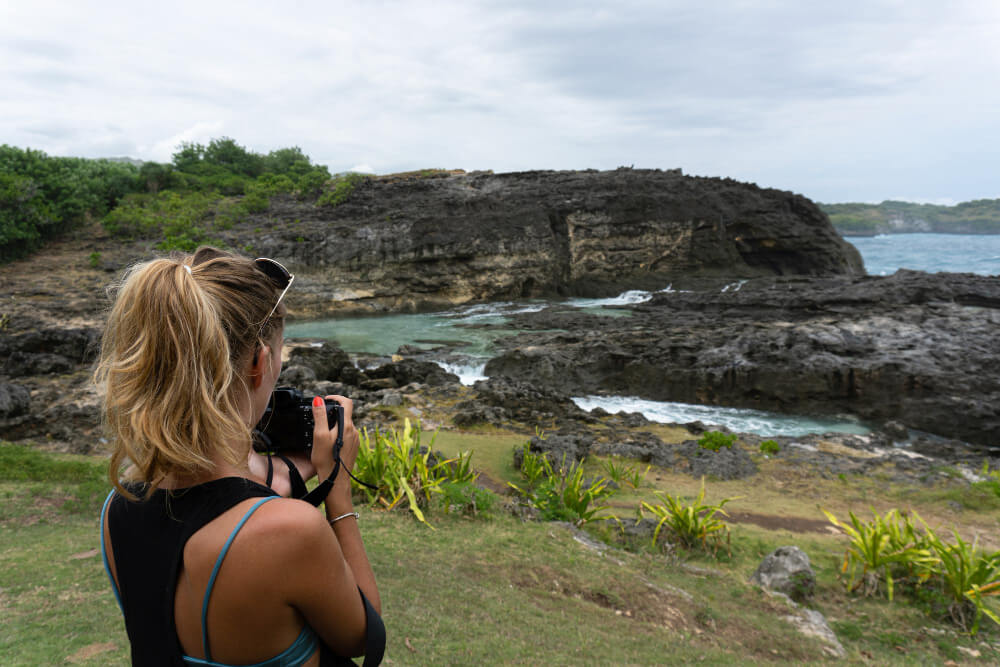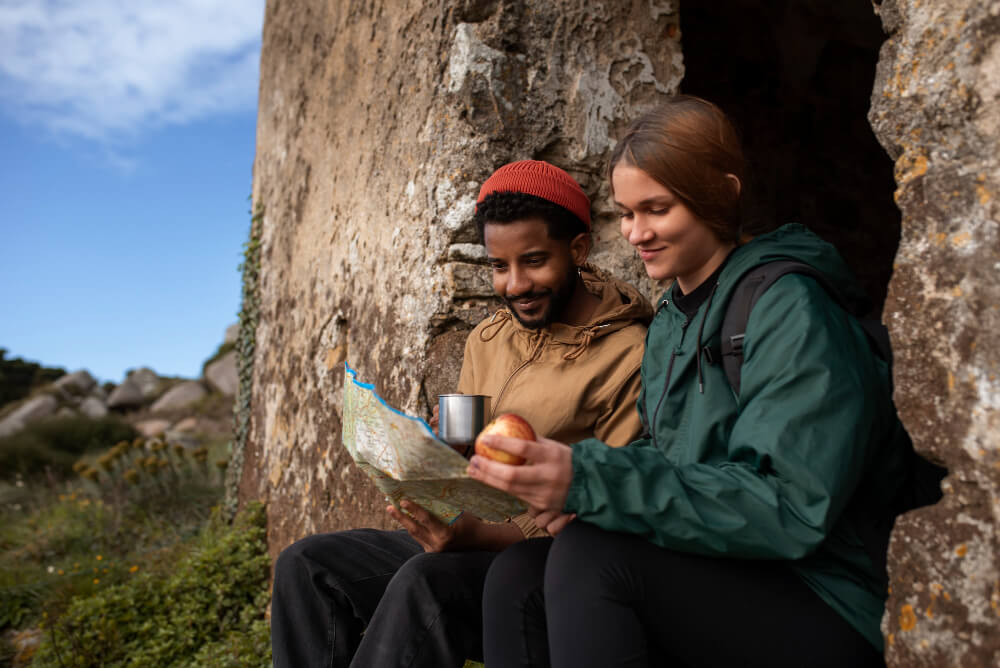Eco-tourism in New Zealand revolves around sustainable travel practices that focus on preserving the natural environment while providing unique and enriching experiences for visitors.
Known for its stunning landscapes and diverse ecosystems, New Zealand has implemented various best practices to protect its natural wonders and promote responsible tourism.
From strict regulations on waste management to promoting local conservation efforts, eco-tourism in New Zealand sets a high standard for environmentally conscious travel.
One of the key features of eco-tourism in New Zealand is the opportunity for visitors to engage with indigenous Maori culture and learn about traditional practices for living in harmony with the environment.
Additionally, the country offers a wide range of outdoor activities such as hiking, kayaking, and wildlife watching, allowing tourists to immerse themselves in the beauty of New Zealand’s untouched wilderness.
In the upcoming sections, we will delve deeper into the best practices for eco-tourism in New Zealand and explore some of the top destinations that exemplify sustainable tourism in action.
Stay tuned for valuable insights and tips on how to make your visit to New Zealand not only unforgettable but also environmentally conscious.
- New Zealand is known for its stunning landscapes and unique biodiversity, making it an ideal destination for eco-tourism.
- Conservation efforts in New Zealand are highly regarded, with a focus on sustainable tourism practices to protect the environment.
- Key eco-tourism destinations in New Zealand include Fiordland National Park, Abel Tasman National Park, and the Catlins.
- Travellers can participate in eco-friendly activities such as hiking, bird watching, and wildlife conservation projects during their visit.
- By choosing to support eco-tourism in New Zealand, travellers can contribute to the preservation of the country’s natural beauty for future generations to enjoy.

What are the Best Practices and Destinations for Eco-Tourism in New Zealand?
Sustainable Accommodation Options
When visiting New Zealand for eco-tourism, opt for accommodations that are committed to sustainability.
Look for eco-friendly hotels, lodges, or even homestays that prioritise environmental conservation and support local communities.
Participate in Conservation Projects
Get involved in hands-on conservation projects during your eco-tourism trip to New Zealand. Explore opportunities to volunteer with local organisations focused on wildlife protection, habitat restoration, or sustainable farming practices.
Explore National Parks and Marine Reserves
New Zealand is home to stunning national parks and marine reserves that showcase its unique biodiversity.
Make sure to visit places like Fiordland National Park, Abel Tasman National Park, or Poor Knights Islands Marine Reserve for a truly immersive eco-tourism experience.
Support Indigenous Tourism Initiatives
Support indigenous Maori-owned businesses and cultural experiences as part of your eco-tourism journey in New Zealand.
Learn about traditional practices, beliefs, and the rich heritage of the Maori people while contributing to their sustainable development.
Choose Eco-Friendly Transportation
Reduce your carbon footprint while travelling around New Zealand by opting for eco-friendly transportation options.
Use public buses, trains, or bicycles to explore different regions, or join eco-tours that promote sustainable travel practices.
Shop Responsibly and Support Local Businesses
When shopping for souvenirs or gifts during your eco-tourism trip, prioritise products that are locally made and sustainably sourced.
Support small businesses, artisans, and farmers who are committed to environmental stewardship and ethical production.
Respect Wildlife and Nature
Practise responsible tourism by respecting wildlife and nature while exploring New Zealand’s natural wonders.
Follow designated trails, observe wildlife from a safe distance, and avoid disturbing fragile ecosystems to ensure the preservation of the country’s biodiversity.
Engage in Educational Experiences
Enhance your eco-tourism trip to New Zealand by participating in educational experiences that provide insights into sustainable practices and environmental conservation efforts. Attend eco-workshops, guided nature walks, or cultural performances that promote eco-awareness and conservation.
What are the Top Tips for Practising Eco-Tourism in New Zealand?
- Research and choose eco-friendly accommodations before booking your stay.
- Pack light and carry reusable items to minimise waste during your trip.
- Support local conservation initiatives and donate to wildlife protection programs.
- Learn about the cultural heritage and environmental challenges facing New Zealand.
- Spread awareness about eco-tourism practices and encourage others to travel sustainably.
FAQs
What exactly is eco-tourism and why is it important in New Zealand?
Eco-tourism is a form of tourism that focuses on conserving the environment and improving the well-being of local communities.
In New Zealand, it is important because the country is known for its pristine natural environment and unique wildlife, and eco-tourism helps to protect and preserve these assets for future generations.
What are some best practices for eco-tourism in New Zealand?
Some best practices for eco-tourism in New Zealand include supporting local businesses and communities, minimising your environmental impact by following Leave No Trace principles, and choosing tour operators that have sustainability certifications.
What are some popular eco-friendly destinations in New Zealand?
Some popular eco-friendly destinations in New Zealand include Fiordland National Park, Abel Tasman National Park, Stewart Island, and the Catlins.
These areas offer stunning natural beauty and opportunities for eco-friendly activities like hiking, kayaking, and wildlife watching.
How can I ensure that my eco-tourism activities are sustainable?
To ensure that your eco-tourism activities are sustainable, you can research tour operators and accommodations that have strong environmental and social responsibility policies, minimise your waste and energy consumption while travelling, and support conservation efforts in the areas you visit.
Are there any eco-tourism certifications or labels to look out for in New Zealand?
Yes, there are several eco-tourism certifications and labels to look out for in New Zealand, such as Qualmark, Enviro-Silver, and the Department of Conservation’s Conservation Partner Program.
These certifications indicate that a business or tour operator meets certain sustainability criteria.
What wildlife can I expect to see during eco-tourism activities in New Zealand?
During eco-tourism activities in New Zealand, you can expect to see a wide variety of wildlife, including seals, dolphins, whales, kiwi birds, albatross, and penguins.
New Zealand is home to many unique and endangered species, making it a prime destination for wildlife enthusiasts.
How can I support local conservation efforts during my eco-tourism trip to New Zealand?
You can support local conservation efforts during your eco-tourism trip to New Zealand by donating to or volunteering with conservation organisations, participating in guided eco-tours that benefit conservation projects, and learning about the native flora and fauna of the areas you visit.
What are some alternative modes of transportation for eco-friendly travel in New Zealand?
Some alternative modes of transportation for eco-friendly travel in New Zealand include cycling, walking, taking public transportation, and carpooling.
These options help to reduce your carbon footprint and minimise the environmental impact of your travels.
How can I reduce my plastic waste while travelling in New Zealand?
You can reduce your plastic waste while travelling in New Zealand by bringing a reusable water bottle and shopping bag, choosing products with minimal packaging, and avoiding single-use plastic items like straws and utensils.
Additionally, you can support businesses that are committed to reducing plastic waste.
What are some resources for learning more about eco-tourism in New Zealand?
Some resources for learning more about eco-tourism in New Zealand include the Department of Conservation website, Eco Tourism New Zealand, and the New Zealand Tourism Sustainability Commitment.
These resources provide valuable information on eco-friendly travel practices and destinations in New Zealand.

Conclusion
Eco-tourism in New Zealand is not just about enjoying the beautiful landscapes and wildlife that the country has to offer.
It’s about making a positive impact on the environment and local communities, and ensuring that these natural treasures are preserved for future generations to enjoy.
By following best practices, supporting local businesses, and minimising your environmental footprint, you can contribute to the sustainability of eco-tourism in New Zealand and help protect the country’s natural heritage.
As a responsible traveller, it’s important to be informed and proactive about ecotourism practices during your trip to New Zealand.
By choosing eco-friendly accommodations, activities, and transportation options, you can make a difference in the conservation efforts of this unique and biodiverse country.
Let’s all do our part to ensure that eco-tourism in New Zealand continues to thrive and benefit both the environment and the local communities that depend on it.